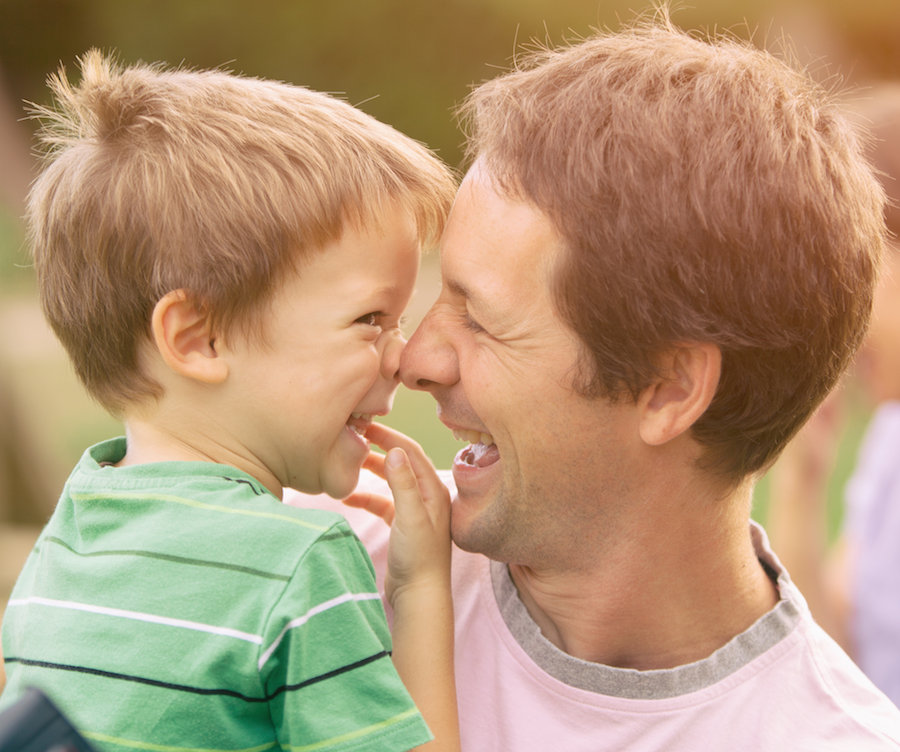Does your kid smile at complete strangers? Offer to help someone in need? Say please, thank you and excuse me? Show compassion, kindness and respect at all times? Invite and include everyone in their classroom to their birthday parties?
If your answer is yes, congratulations. You’ve achieved the Holy Grail of parenting. Go grab yourself a glass of wine. If not, you are absolutely not alone!
We all want to raise our kids to be amazing little people, inside and out. Here are the little, everyday things you can do, bit by bit, on the road to raising good little people.
- Surrounding Your Little People with Role Models
Kids pick up so many social cues from the people around them. We realise what little mimics our children are when they start to repeat our favourite sayings, idioms and mannerisms back to us like parrots. Our thoughts, opinions, prejudices, expressions (and curses) are picked up and adopted by our kids. (Cue flashbacks flooding in of all those embarrassing moments we’ve all experienced).
Family, friends, teachers, coaches, peers, celebrities, athletes and even characters can all give influence as role models (we know what you’re thinking – ‘oh oh’). But relax – while we can’t control the behaviour and projections of all these people, we can always ensure we’ve got as many really positive role models around as we can muster. And that we ourselves are projecting positive examples (as often as possible).
The American Academy of Child & Adolescent Psychiatry gives some advice, suggesting that as parents we discuss role models (both positive and negative) with our kids. Like talking about the qualities and decisions we admire in these people, what and who we look up to (yes, Oprah totally counts). They also suggest reminding our kids that nobody is perfect, and discussing bad decisions and behaviours you’ve witnessed together, so they still learn from seeing those not-so-perfect moments in their role models. Tell your kids why you do what you do when you’re setting great examples, so they know the thought process behind it all. And celebrating your kids ‘making good choices’ is a great way to reinforce good behaviours. All these suggestions are sure to help them with learning what is right, and what is wrong.
- Teaching Kindness & Compassion
Teaching your kids to express what they are feeling with words is the first step to understanding how others may be feeling. It sounds simple, but to us what comes as second nature may not yet be clear-cut for our little bundles of joy. Talking to our kids about the feelings of other people, what we can do to help other people feel good, and why this is important, goes a long way to teaching empathy, kindness and compassion. Like “that was lovely how you helped that lady. I think that really made her happy. You’re are such a lovely boy.” To teach kids how to be kind and empathetic people takes discussion, experience and a lot of leading by example (oh yeah, we’ve totally got this)!
The age old lesson to “treat others as you would like to be treated” could be a way of explaining all of this to kids. We all know kids can be cruel, but thankfully this doesn’t mean our little cherubs need to be. The general consensus between parenting experts seems to be that ‘nipping it in the bud’ as soon as you hear your kids repeating negative playground talk helps. They recommend explaining why it’s not okay to say mean things about others or exclude them, and asking your children how they would feel if the roles were reversed. And be sure to do any venting about others well out of earshot of your kids (especially if they do love to parrot what you say).
And of course, teach your kids through practical experience how great it feels to know you’re helping others. Bring back chivalry. If you see someone struggling, offer assistance. And explain to your kids why you’re doing it, and how much it means to that other person. You’ll feel like a totally great human and you get double points for teaching the kids to be one too!
Set yourself some kindness missions to do with the kids. In most situations volunteering teaches compassion and kindness. Research volunteering programs in your local area, to create your own kindness adventures with the kids.
- Honesty and Morals
The easiest way is to make sure your kids know the importance of being honest, truthful and sincere is to reward and thank them for their honesty. Especially when they’ve admitted to doing something wrong – which takes a lot of guts. When kids lie, let them know how much worse they’ve made the situation by being dishonest. When they admit they’ve done wrong, make sure they know they’re getting a lighter ‘sentence’ when they own up to it (and step back from your wrath a little when they do).
But don’t forget to include teaching tact in your honesty lessons. Telling someone your honest opinion in a nice way is an important lesson for our kids to learn (need we say more)?
- Manners, Social Etiquette and Respect
As parents, the easiest way to teach our kids about the social niceties in life is by leading by example (sensing a theme here?) and praising them when they do things well.
Compliment your kids on their use of good manners, when they’re polite to others, and when they show great social etiquette – either at the time it happens, or quietly afterwards. Reinforce the importance of showing respect to others, no matter who they are. Teach your kids to listen attentively, respect the opinions and feelings of others and refrain from talking down to people.
And of course, being the perfect well-mannered socialites that you are, demonstrating these behaviours in front of your children will help a great deal. You can explain to the kids what you’re doing and why, as you do it. Like when you put down your phone before being served at the checkout, or when you sit down for dinner. “I really care about what you want to tell me so let me put this phone away first.” You can even work in a quick debrief after social interactions to drive the points home. “That man was very friendly and polite, wasn’t he. He had great manners.”
And following on from kindness and compassion, is the inclusion of others; or more importantly, to not exclude others. Think birthday parties where everyone is invited, or where kids aren’t specifically excluded. We could get ‘you can’t always invite the whole class, but as long as the ‘unpopular’ kids aren’t left out where all others are included, or the party itself isn’t widely publicised in the school yard so those uninvited don’t feel excluded’. Reiterate the importance of saying ‘yes’ when other kids ask to be involved in playground games, even if their friends are less inclusive.
- Raising Best Friends
If you’ve got more than one child, raising your kids to get along nicely can be a difficult task. But the rewards are well worth it: learning to get along with siblings or cousins teaches kids a lot about social etiquette, respect, sharing, caring, and inclusiveness.
Noticing, praising and rewarding good behaviours like sharing, playing nicely together and helping one another out helps reinforce these positive behaviours. And encouraging your children to ‘hug and make up’ when they argue and teaches them the importance of conflict resolution and how to get along.
You’ll teach your kids about just how special the bond between brothers and sisters can be, and how important it is to get along in the long run, even if you disagree sometimes.
Before you know it you’ll be celebrating your success in raising perfect little humans who are kind, loving, compassionate, good little people – well, that’s the idea anyway!
Enjoy reading this? You can learn more about Springfree Trampoline or read more on the Springfree Trampoline blog.
Sources
American Academy of Child and Adolescent Psychiatry, ‘Role Models and Children’, March 2017. http://www.aacap.org/aacap/families_and_youth/facts_for_families/fff-guide/Children-and-Role-Models-099.aspx
You might also like to read:
15 Ways to Help Raise Compassionate Children
How to keep stress at bay while you juggle work and family









